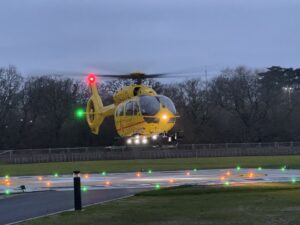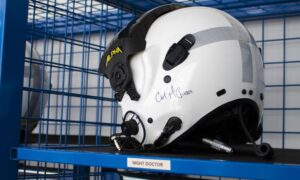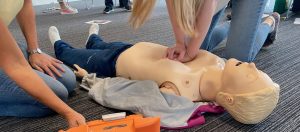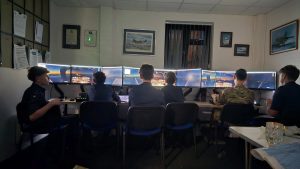In September 2024, the EAAA POCUS course became the first pre-hospital ultrasound course to use the new Butterfly IQ3 ultrasound probe.
In September 2024, the EAAA POCUS course at Helimed House, EAAA’s Norwich Headquarters, became the first pre-hospital ultrasound course in the UK to use the new Butterfly IQ3 ultrasound probe. An upgrade to the current devices used by EAAA.
POCUS refers to Point of Care Ultrasound. It is an intervention carried out at the patient’s side by attaching a handheld ultrasound probe, produced by an organisation called Butterfly, to the crew’s iPad or iPhone.
POCUS allows our crew to diagnose pathology in the early phases of care, helping to inform decision-making at the scene of incidents. It also enables our crew to perform advanced resuscitation interventions at the scene of incidents, many of which are not available in a hospital setting.
EAAA’s Academy of Pre-Hospital Emergency Medicine hosted September’s POCUS course, where delegates of different clinical backgrounds were the first in the UK to use Butterfly’s IQ3 probe. This probe is a step forward in ultrasound technology with enhanced processing power and new features in a small more refined probe design.
The IQ3 devices will be introduced to EAAA crews in the coming months, as one of the first UK air ambulances to use them. They will be integrated into our mature POCUS governance system. As a result, patients experiencing critical emergencies in the region who are attended by EAAA will benefit from this advanced technology.

EAAA POCUS Course Lead, Dr Toby, says: “It’s exciting to see how ultrasound technology is developing and applicable to the pre-hospital setting. The Butterfly IQ3 is smaller, lighter and more powerful. It means EAAA clinicians can bring even more of the hospital directly to the side of our patients at the scene of incidents.”
Dr Toby continues, “EAAA has been at the forefront of pre-hospital ultrasound for several years and the introduction of this new technology allows us to continue developing this aspect of our care for patients. This is all thanks to the incredible EAAA supporters, whose kind donations give people experiencing medical emergencies the very best treatment and care at the scene of a life-threatening emergency.”




